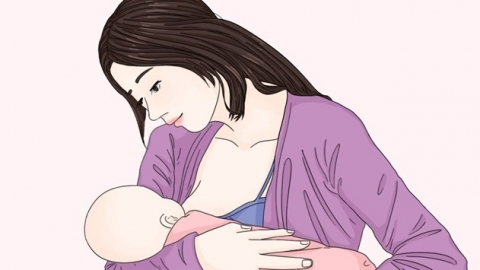What does it mean if lochia hasn't stopped after one month postpartum?
Lochia that has not cleared by the end of the first month postpartum may be caused by poor uterine involution, retained tissue, puerperal infection, endometritis, or myometritis. It can be improved through rest and regulation, medication, or curettage. If there is heavy lochia, foul odor, or accompanied by abdominal pain and fever, prompt medical attention is necessary.
1. Poor uterine involution: After childbirth, weak uterine contractions fail to expel residual decidua from the uterine cavity in time, leading to prolonged lochia with fluctuating volume. It is recommended to ensure adequate rest, avoid fatigue, and gently massage the lower abdomen to promote uterine contraction.
2. Retained tissue: Small amounts of placental or fetal membrane tissue remaining in the uterus after delivery can impair uterine contraction, resulting in persistent lochia, possibly accompanied by blood clots. Prompt medical evaluation is advised; curettage may be required if necessary, followed by appropriate postoperative care as directed by a physician.

3. Puerperal infection: Improper postpartum care allows bacteria to enter the reproductive tract, causing infection. Inflammatory stimulation leads to abnormal lochia—increased volume with foul odor—often accompanied by fever and abdominal pain. Under medical guidance, medications such as cefixime dispersible tablets, metronidazole tablets, and Gynecological Qianjin tablets may be used to relieve symptoms.
4. Endometritis: Infection and inflammation of the endometrium after childbirth cause persistent lochia, which may appear dark red or contain pus-like discharge, along with dull lower abdominal pain. Under medical supervision, drugs such as cefuroxime axetil tablets, amoxicillin capsules, and Fuyankang tablets may be prescribed to improve symptoms.
5. Myometritis: Inflammation affecting the uterine muscle layer impairs uterine contraction and recovery, resulting in prolonged, irregular lochia, accompanied by lower abdominal heaviness and tenderness. Follow medical advice to use medications such as levofloxacin hydrochloride capsules, cefdinir dispersible tablets, and Gongyanping tablets to alleviate symptoms.
Maintain external genital cleanliness and dryness, frequently change cotton underwear, avoid sexual intercourse too early after childbirth, eat a light and nutritious diet rich in protein and vitamins, and engage in moderate activity to support recovery.




